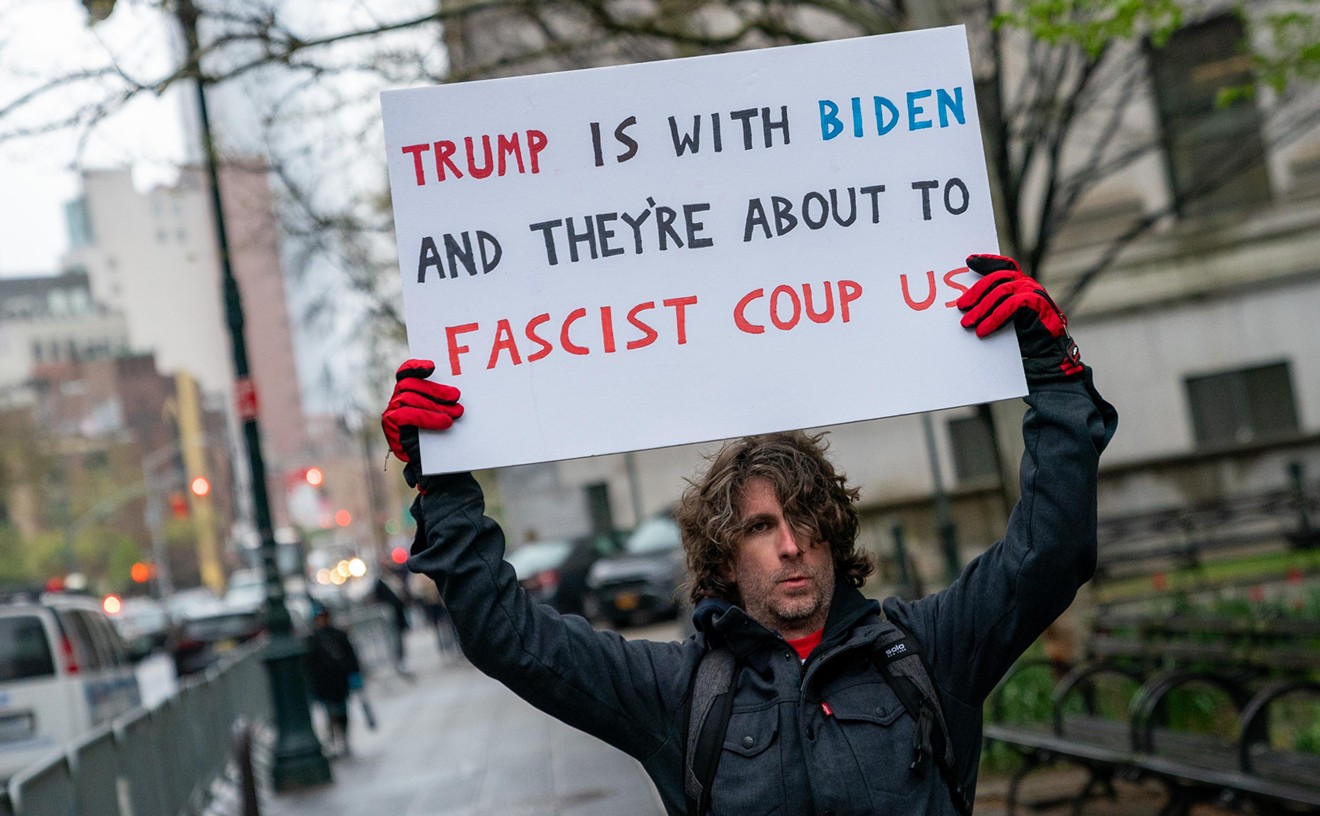But a few independent organizations have still taken up the cause. Yesterday the Journal of the American Medical Association (JAMA) published an original investigation linking Florida's infamous "Stand Your Ground" law to an "abrupt and sustained" increase in homicides statewide.
"The implementation of Florida’s stand your ground self-defense law was associated with a significant increase in homicides and homicides by firearm, but no change in rates of suicide or suicide by firearm," researchers with JAMA's Internal Medicine publication write.
After Florida's Stand Your Ground law was implemented in 2005, JAMA says, there was an "abrupt and sustained increase in the monthly homicide rate of 24.4 percent" and a 31.6 percent jump in firearm homicides each month.
Importantly, the monthly homicide rate among African-Americans increased 32 percent, from 36 deaths each month to 48.
Famously, the law let George Zimmerman walk free after he fatally shot Miami Gardens teen Trayvon Martin, an unarmed black teenager wearing a hoodie. Martin's killing led to months of protests and national outrage, jump-starting the Black Lives Matter movement.
The law also recently allowed Peter Peraza, a Broward Sheriff's Office deputy who killed a black man carrying an unloaded air rifle, to walk away scot-free.
This isn't the first study that's warned that Stand Your Ground adds to the homicide rate: Texas A&M University researchers also made that exact claim in 2012. Despite this fact, both Govs. Jeb Bush and Rick Scott have defended the law.
Stand-your-ground laws exist in 23 states — though Utah implemented one in 1994, the idea only really took off after Florida became the second state to draft similar legislation in 2005. Since then, 21 other states have adopted similar laws.
The regulations are known informally as "shoot-first" laws because they allow gun owners to kill anyone they believe might threaten them. Florida's law states that residents have "no duty to retreat" if they "reasonably believe" they need to use force to save their lives. Floridians also have "no duty to retreat" even in situations they themselves initiated.
"Advocates of the laws suggest that the increased threat of retaliatory violence deters would-be burglars, resulting in fewer intruder encounters," JAMA writes. "Critics are concerned that weakening the punitive consequences of using force may serve to escalate aggressive encounters. They also argue that these laws may exacerbate racial disparities in homicide where threats motivated by racial stereotypes produce unnecessary fatalities."
Black activists have routinely questioned the way stand-your-ground laws are applied: During the Trayvon Martin case, critics questioned why courts assumed Zimmerman was standing his ground against Martin despite the fact that Zimmerman in his car stalked Martin and initiated the encounter between the two. Many have asked why courts did not assume Martin was standing his own ground against Zimmerman's attack.
Furthermore, mere months before Zimmerman was allowed to walk free, a black Florida woman, Melissa Alexander, was sentenced to 20 years in prison for firing a "warning shot" at her ex-husband, whom she said was threatening her life. The bullet did not hit anyone, and activists asked why Alexander, a black woman, was not freed under the same stand-your-ground laws awarded to Zimmerman. She was freed after taking a plea deal in 2015.
The law has also been cited to support a host of bizarre shootings: One guy tried to claim he was standing his ground after shooting a whiny customer at a Little Caesar's Pizza in 2012.
Earlier this year, a Broward County court ruled that Florida's Stand Your Ground extended to police officers, after Peraza, the BSO cop, fatally shot Jermaine McBean, a black computer engineer. Photographs show McBean was likely wearing earbuds, raising the likelihood that he could not hear police officers speaking to him before he was killed.
"As the first state to implement a 'stand your ground' law, Florida is an important test case
Importantly, firearm homicides were decreasing in Florida before the law took effect in 2005 but shot up afterward.
JAMA then compared the upshot in firearm deaths to states that don't have stand-your-ground laws, and deaths in those states remained unchanged. That statistic bolsters the claim that











